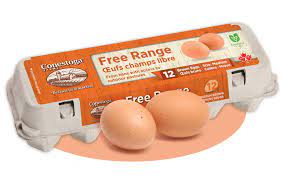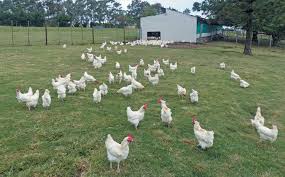


Many South African consumers are beginning to factor in the welfare of animals as well as the conditions in which they were raised, when making purchasing decisions on what animal products to purchase.
On the surface, egg production from caged layers seems like a profitable and highly efficient poultry production system and it is. Farmers using this mode of production still produce most of the eggs locally at a fairly low cost of production. While the drought and feed shortages have put some pressure on the industry, it is still a highly efficient production system.
However, the conditions in which these birds produce eggs is not always humane. They are raised in an environmentally controlled environment where their only purpose is to eat and lay eggs. They are like egg laying machines. This is generally done in a very tiny space that is barely the size of an A4 paper. Some farmers use antibiotics indiscriminately in order to improve the productivity of the chickens in the cage environment.
Chickens raised in a barn environment fare slightly better depending on the farmer’s stocking density. If the conditions are good, they will have the room to move around and express a bit of their natural behavior. While most farmers consider the barn- based environment as “free range” it is not sufficiently so and with proper legislation and standards.These chickens may not be considered free range unless the farmer provides reasonable access to the outdoors for a designated number of hours per day via peepholes. Still, in some countries such as Australia, barn-raised chickens are often considered as free-range. Many SA farmers who use the barn system also label their chickens as free-range products.
However, true free-range poultry production is when the chickens are allowed access to the outdoors and given a well managed outdoor range in which the chickens can forage and feed on the grass, legumes, worms, and grubs to supplement their formulated poultry diet.
RULES & REGULATIONS
When starting a free -range chicken egg farming operation in South Africa, it is important to familiarize yourself with the various rules and regulations governing the industry. Talk to the local authorities and determine if you will need any permissions. A static housing may require certain permissions which might not be the case with mobile chicken houses for your free-range chickens.
SET-UP COSTS
There are various initial costs that you will grapple with when launching your free-range egg farming business in South Africa. However, what you eventually get to foot will depend on the scale of your ambition as a farmer. There are the costs associated with the setting up the static building and buying various poultry equipment such as the poultry feeders, drinkers and nest boxes. Some SA poultry farmers prefer to mechanize a bit. They do that by introducing mobile sheds or “egg mobiles” which allow the free-range hens to graze over a vast piece of land and glean all the nutrients found therein.
WORKING CAPITAL
If you are rearing the commercial egg-laying varieties such as the Hayline Brown and the Hyline Silver Brown layers in SA, then it is advisable to purchase those that are ready to start laying and which are generally aged at about 16 weeks. This will help you cut down on the high cost and high-risk process of rearing your layers from about day old to 16 weeks of age. By the time you begin seeing a positive cash flow, the hens should be aged anywhere from 35 to 40 weeks. When buying your hens, you can start by placing a provisional order earlier on before the start date. Many breeders will require that you book your hens weeks in advance.

